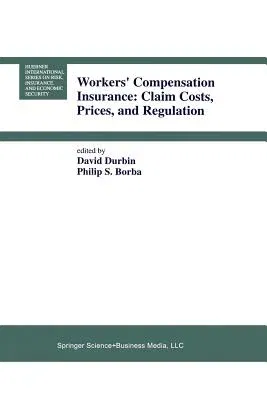The articles in this volume were first presented at the Seventh and
Eighth Conferences on Economic Issues in Workers' Compensation sponsored
by the National Council on Compensation Insurance. A principal objective
of the Conference series has been for workers' compensation insurance
researchers to apply state-of-the-art research methodologies to policy
questions of interest to the workers' compensation insurance community.
This community is a rather diverse group--it includes employers,
insurers, injured workers, regulators, and legislators, as well as those
who service or represent these groups (e.g., physicians, rehabilitation
specialists, labor unions). Despite this diversity and the variety of
agendas, the Conference series continues to address many important
policy questions. Readers familiar with the Conference series and the
four previously published volumes should notice an evolution in terms of
the topics addressed in this volume. In the earlier conferences, the
topics were more often concerned with the underlying causes of the
tremendous increase in workers' compensation benefit payments. In the
present volume, h- ever, only four of the fourteen chapters directly
concern workers' c- pensation insurance benefits, while the other ten
concern the pricing of workers compensation insurance. This is not to
suggest that workers' compensation cost increases have abated. In 1989,
workers' compensation incurred losses exceeded $45 billion to continue
the annual double-digit cost increases. Two explanations can be offered
for the somewhat altered focus of this volume. First, despite the
continued increase in prices, the financial results for the workers'
compensation insurance line continue to be poor.


